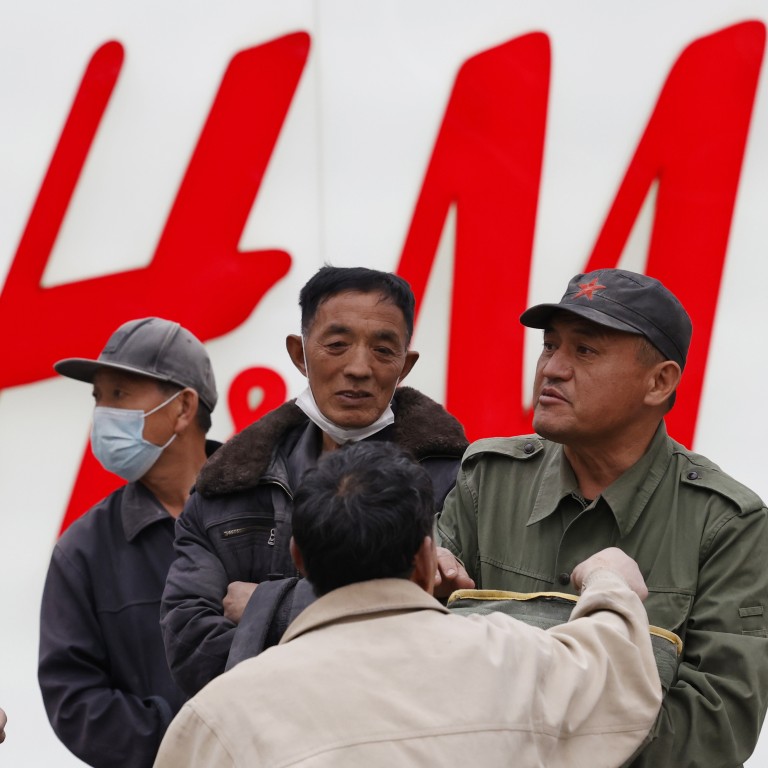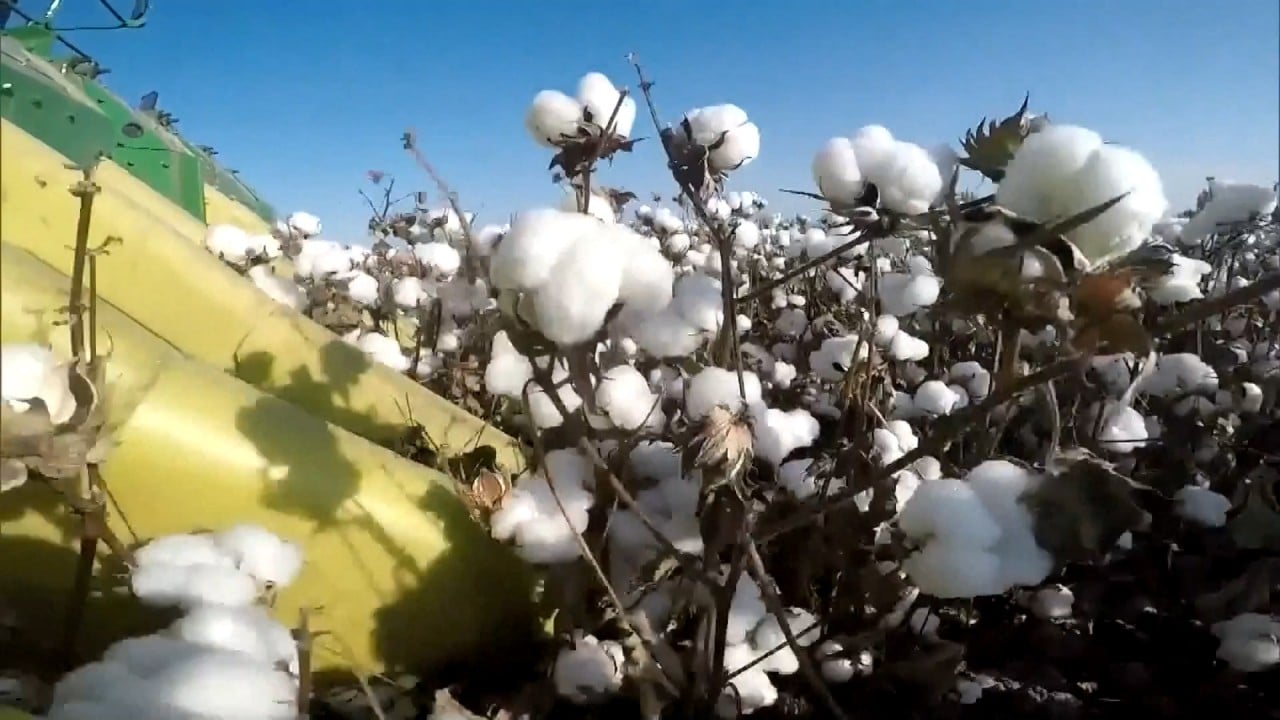
UN panel warns that ‘well-known global brands’ may be linked to Xinjiang human rights abuses
- More than 150 companies, from China and around the world, could be connected to the suspected abuses, though the report does not name the businesses
- Uygur workers have been reportedly subjected to ‘arbitrary detention, human trafficking, forced labour and enslavement’, says United Nations working group
Scores of Chinese and foreign companies producing “well-known global brands” may be involved in human trafficking, forced labour and other human rights abuses in China’s Xinjiang region, a United Nations working group said on Monday, calling more attention to an issue that Beijing is increasingly on the defensive about.
“Several experts appointed by the Human Rights Council said they had received information that connected over 150 domestic Chinese and foreign domiciled companies to serious allegations of human rights abuses against Uygur workers,” the Office of the United Nations High Commissioner for Human Rights (OHCHR) said.
No specific companies were named, but the working group mentioned the sectors of agribusiness, tech, automotive, and textile and garment.
The independent sources used by the UN working group said that “hundreds of thousands of members of the Uygur minority have been held in ‘re-education’ facilities” and that “many have also reportedly been forcibly transferred to work in factories in the Xinjiang Uygur autonomous region and in other Chinese provinces”.
Members of the working group have written to China’s government; businesses whose supply chains include entities in Xinjiang; and the governments of 13 other countries where the companies are headquartered “to ensure that businesses under their territory and/or jurisdiction respect all human rights throughout their operations”, it said. The statement did not name the other countries.
Corri Zoli, director of research at the Institute for Security Policy and Law at Syracuse University in New York, called accounts of abuse in Xinjiang from groups including Human Rights Watch “increasingly reliable” and said they buttressed the UN working group’s investigations.
“These specific reports, data collection and outreach efforts are unifying international pressure from many angles,” Zoli said. “What we are seeing in this issue is the first-generation of the supply chain wars with complex information campaigns overlaid on these conflicts.”
US-China relations: forced labour to keep pressure on Chinese textile firms as American firms cut orders
The stand-off between Beijing and Western nations including the US escalated last week when Washington joined with Canada, Britain and the EU on sanctions against officials deemed responsible for human rights violations in Xinjiang.
“We stand ready to strengthen our dialogue with the government of China at the earliest opportunity and welcome the government’s prompt response to these allegations as well as its willingness to continue the constructive engagement with us,” the UN working group said.
“As independent experts appointed by the Human Rights Council, of which China is a state member, we consider that an official visit to China (including the Xinjiang region) would be the ideal opportunity for such dialogue and to assess the situation for ourselves based on free and unhindered access,” it added.


